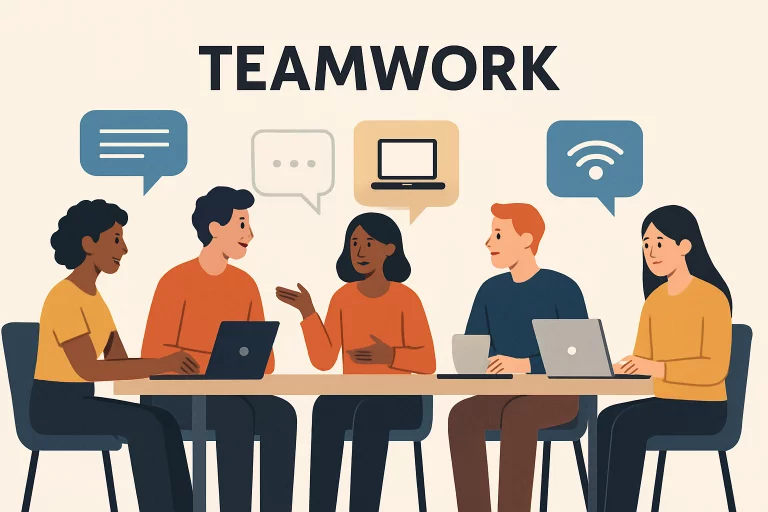Building Better People Teams for Modern Workplaces

Introduction
The modern workplace is undergoing a seismic transformation as businesses worldwide navigate through a landscape shaped by technological advancements, evolving employee expectations, and the realities of remote, hybrid, and in-person work models. This rapidly changing environment is pushing organizations to re-evaluate what it means to build high-performing, resilient people teams. These teams are not only tasked with recruitment and HR management but are now central to shaping culture, sparking innovation, and enhancing overall employee well-being. It’s no surprise that the people team has emerged as a strategic powerhouse, proving that even lean teams can drive outsized business impact. Their ability to bridge ever-changing business goals with the needs of a diverse workforce is at the core of sustainable success in the modern workplace.
As organizations look to the future, they must strike a delicate balance between leveraging advanced technology and fostering authentic human connections. People leaders are at the forefront of catalyzing such change—implementing new tools, reimagining office life, and prioritizing initiatives that support both productivity and personal growth. This comprehensive guide explores what it truly takes to build, empower, and sustain people teams that champion employee experience, foster a sense of belonging, and propel collective achievement, all while remaining nimble and future-ready in a dynamic work landscape.
Table of Contents
- Introduction
- Understanding the Modern Workplace
- Key Components of Effective People Teams
- Fostering Inclusion and Diversity
- Continuous Learning and Development
- Measuring Success and Adapting Strategies
Understanding the Modern Workplace
The world of work is no longer constrained by traditional boundaries. Digital transformation, accelerated by the widespread adoption of remote tools and flexible work policies, has enabled employees to perform their jobs from virtually anywhere. As a result, organizations are rethinking how and where work gets done, striving to meet employee demands for autonomy, flexibility, and meaningful work. Hybrid models—where employees split their time between the office and remote locations—are commonplace, but they present unique challenges regarding cohesion, communication, and engagement. To remain competitive, forward-thinking companies have begun redesigning their physical office spaces to support new modes of collaboration and employee well-being, incorporating amenities such as wellness rooms, collaborative breakout zones, and even on-site childcare facilities. Companies like Spotify are leading the charge by creating inclusive and adaptable environments that prioritize well-being and teamwork at the heart of their operations.
Key Components of Effective People Teams
At the heart of any thriving organization is a people team that both embodies and promotes company values. Effective people teams establish the foundation for trust, collaboration, and a positive work environment, ensuring that everyone feels respected and connected to the mission. Essential elements of successful people teams include:
- Leadership by Example: When leaders consistently model the organization’s values through their actions and decisions, it sets a powerful precedent for the rest of the workforce. Authentic, value-driven leadership instills purpose and fosters a supportive, high-performance culture.
- Embracing Mistakes as Learning Opportunities: Rather than punishing errors, resilient teams encourage reflection, openness, and growth. Creating psychological safety empowers employees to experiment, innovate, and adapt without the fear of failure or retribution.
- Open Communication: Transparent, inclusive communication ensures that challenges are surfaced early, feedback is normalized, and team members are actively engaged in problem-solving. With regular dialogue, teams can quickly pivot, sustain momentum, and reinforce trust. Learn more about the power of authenticity in teams in Building Authentic Teams: The Key to Thriving Workplaces.
These foundational elements lay the groundwork for a positive workplace culture, fueling motivation, sparking innovation, and ensuring teams are well-equipped to navigate rapidly shifting business priorities.

Fostering Inclusion and Diversity
Innovation flourishes when organizations celebrate diverse perspectives and ensure that every employee feels a sense of belonging and value. People teams can drive these outcomes by weaving diversity, equity, and inclusion (DEI) into the fabric of everyday operations, not just as standalone initiatives, but as ongoing commitments enshrined in policy and practice. Approaches include:
- Virtual Team-Building Activities: Hosting online social events and workshops helps remote and hybrid workers break the ice, develop meaningful relationships, and foster unity across dispersed teams.
- Regular Check-Ins: Routine one-on-one conversations with managers and team members allow organizations to assess engagement, clarify goals, and provide timely support.
- Inclusive Communication Practices: Prioritizing accessibility—through multilingual resources, captioned videos, or asynchronous updates—ensures that everyone, regardless of background, can participate fully.
By grounding DEI efforts in all business operations, organizations not only unlock innovation but also enhance their reputation, improve recruitment and retention, and boost overall employee satisfaction.
Continuous Learning and Development
The companies best equipped for long-term success are those that build a culture of continuous learning. People teams fuel this culture by advocating for ongoing professional development, upskilling, and interdisciplinary collaboration. Innovative programs might include:
- Personalized Training Programs: Adaptive, data-driven learning paths tailored to each employee’s role, strengths, and aspirations empower individuals to take control of their career growth and help the company adapt to emerging business needs.
- Encouraging Experimentation: Initiatives such as hackathons, cross-team pilots, and open innovation challenges not only keep teams agile but also normalize calculated risk-taking and learning from failure.
- Cross-Functional Collaboration: Promoting connections beyond traditional departmental boundaries cultivates creative thinking, problem-solving, and knowledge exchange.
Committing to professional growth ensures the workforce is ready to meet both current and future challenges with confidence and creativity.
Measuring Success and Adapting Strategies
Building a resilient people function is an ongoing journey that demands reflection, review, and adaptation. The most effective people teams continually measure their progress and adjust strategies in response to evolving business demands and workforce feedback. Key tactics include:
- Regular Employee Feedback: Systematic surveys and quick pulse checks provide actionable insights, allowing teams to proactively address small issues before they escalate.
- Data-Driven Decision Making: By analyzing both quantitative metrics (like turnover, engagement, or productivity) and qualitative insights from staff, people teams can track trends, identify performance gaps, and fine-tune HR initiatives for maximum impact.
- Flexibility in Policies: Policies and approaches are continually reviewed and refined based on employee input, ensuring they remain relevant and effective in response to shifting organizational and societal dynamics.
As the workplace continues to evolve, so too must the strategies for supporting and empowering people. The ability to listen, learn, and adapt is what sets high-impact people teams apart from the rest.
In sum, the central role of people teams in shaping engaging, inclusive, and productive workplaces has never been more important. By building capabilities around technology, culture, learning, and well-being, organizations future-proof themselves against disruption and unlock the full potential of their talent.
For more articles visit: desktopfeed.com





